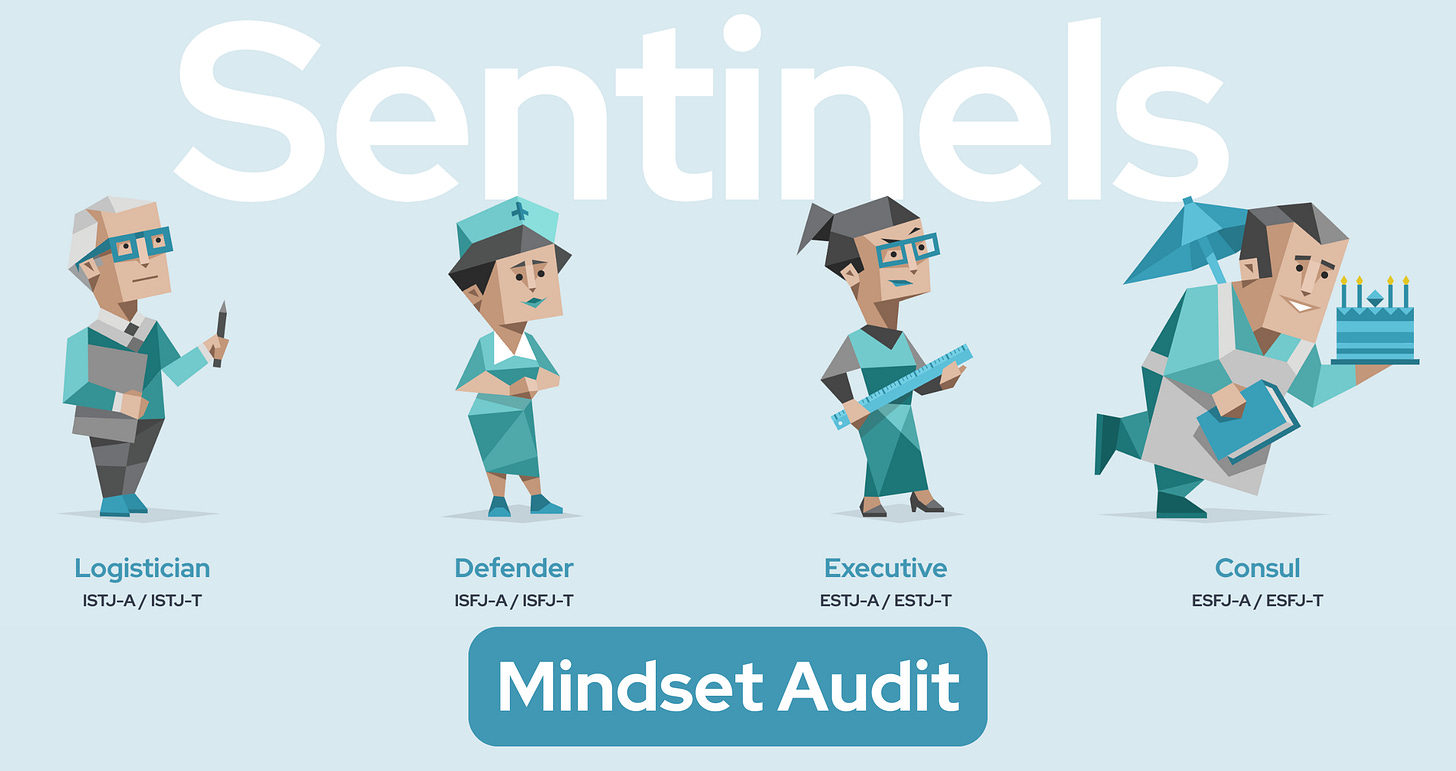How to Help Sentinel Personalities Think Critically
Simple Tips to Help ISTJs, ISFJs, ESTJs, and ESFJs Stretch Their Thinking
TLDR:
Sentinel personalities (ISTJ, ISFJ, ESTJ, ESFJ) excel at practical implementation and proven methods but can resist innovative approaches
Their respect for tradition and established processes can create blind spots when new situations require fresh thinking
These team members benefit from structured ways to question “how we’ve always done it” without abandoning practical wisdom
Each Sentinel type has specific patterns of relying on past experience that need different approaches to expand
Simple questioning frameworks can help them evaluate when to follow tradition and when to innovate
Sentinel personalities (ISTJ, ISFJ, ESTJ, and ESFJ) aren’t afraid to work hard to maintain their way of things. They’re highly practical and reliable, and will often play the role of implementers and stabilizers in the workplace.
But their deep respect for proven methods and established procedures can sometimes work against them. They might resist necessary innovations or continue ineffective practices simply because “that’s how we’ve always done it,” even when circumstances have changed significantly.
Today, we’ll cover:
How to spot Sentinel team members
Why their practical strengths can create thinking blind spots
How to help them balance tradition with innovation
A specific leadership tip for each Sentinel personality type
How to Spot Sentinel Team Members
Your team member might be a Sentinel if they:
Prefer proven methods over experimental approaches
Value thorough preparation and detailed planning
Focus on practical implementation and getting things done
Respect established hierarchies and clear procedures
Take responsibility seriously and follow through on commitments
Feel most comfortable when there are clear expectations and guidelines
For more tips on how to recognize and work effectively with all Sentinel personalities, check out our past Identifying Personalities at Work series.
How the Sentinel Role Shapes Thinking Styles
Sentinels share the Observant and Judging personality traits.
The Observant trait means they focus on concrete details and real-world facts. They trust information they can verify through direct experience over abstract theories.
The Judging trait makes them planning-oriented. They prefer structured approaches and settled decisions. They want clear guidelines and established procedures to follow.
Together, these traits make Sentinels excellent at applying proven frameworks to solve problems. They draw on past experience to make decisions and build on what has worked before. This creates consistent, reliable outcomes that others can count on.
But Sentinels are especially prone to anchoring bias – they rely too heavily on the first piece of information they learned or the initial approach that worked. When they face new challenges, they might automatically reach for familiar solutions without questioning whether those solutions still fit.
Their respect for precedent can make them dismiss new information that contradicts established practices. They may continue using outdated methods simply because questioning them feels like rejecting valuable experience.
Type-Specific Approaches to Building Critical Thinking
While all Sentinels share the Observant and Judging personality traits, how these traits combine with others creates unique thinking patterns for each type.
Here’s one leadership tip for each Sentinel personality type to help them audit their default thinking patterns:
Keep reading with a 7-day free trial
Subscribe to Leadership by 16Personalities to keep reading this post and get 7 days of free access to the full post archives.



